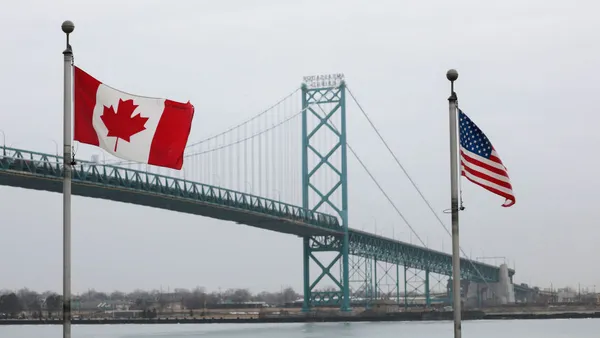Dive Brief:
- Teva announced CFO Michael McClellan is departing "due to personal reasons requiring him to be located near his family." McClellan will remain in the role through third-quarter earnings, and the company has initiated a search for a replacement.
- The announcement came alongside second-quarter results that indicate continued sales declines due to patent expirations, generic pricing pressure, and slow growth of new products. Operational cash flow was negative in the second quarter.
- Teva's already battered shares fell 5% within a day of the announcement. The company has lost 39% of its value since CEO Kåre Schultz took charge in November 2017.
Dive Insight:
Investors sometimes view the unexpected departure of a CFO poorly. When it comes in the midst of a turnaround, it's almost certain to put pressure on shares, as happened with Teva's latest news.
Schultz, though, made clear to analysts it was not a forced departure, and instead, was related to an illness in McClellan's family.
McClellan had been one of the top-level executives Schultz installed when he took the reins at Teva with a remit to turn around the company. At the time, stalling generic sales, lapsing exclusivity for its biggest seller Copaxone (glatiramer acetate) and debt from the Allergan generics acquisition needed to be digested.
In many ways, the news nearly two years into Schultz's tenure is little better. Teva disclosed second quarter financial data that shows revenue still in decline on a year-to-year basis, dropping to $4.3 billion. A small uptick for $42 million from the first quarter of this year was recorded, however.
Some product lines are showing signs of steady growth, including the new migraine medicine Ajovy (fremanezumab) in North America, and generic drugs outside of North America and Europe.
Yet Teva still registered negative cash flow of $227 million and an operating loss of $644 million in the second quarter. Teva has cut $2.7 billion from its base costs since Schultz assumed control, on its way to a $3 billion goal, which has resulted in more than 11,000 job cuts.
Following the release of earnings and the McClellan announcement, Evercore ISI analyst Umer Raffat downgraded his rating on Teva shares, citing negative cash flow, Ajovy's slow growth, and uncertainty over opioid litigation.
In addition, Raffat said the company has mismanaged its approach to repaying its $28.7 billion of debt. Teva reported that it paid off $1.7 billion worth of debt due in July 2019, first retiring $126 million of principal in the first quarter and $18 million in the second quarter before paying off the remainder at maturity.
Raffat wrote that he believes short-term debt needs to be refinanced, which will put further pressure on its cash flow. Teva has $2.6 billion worth of debt due to be paid off in 2020.















